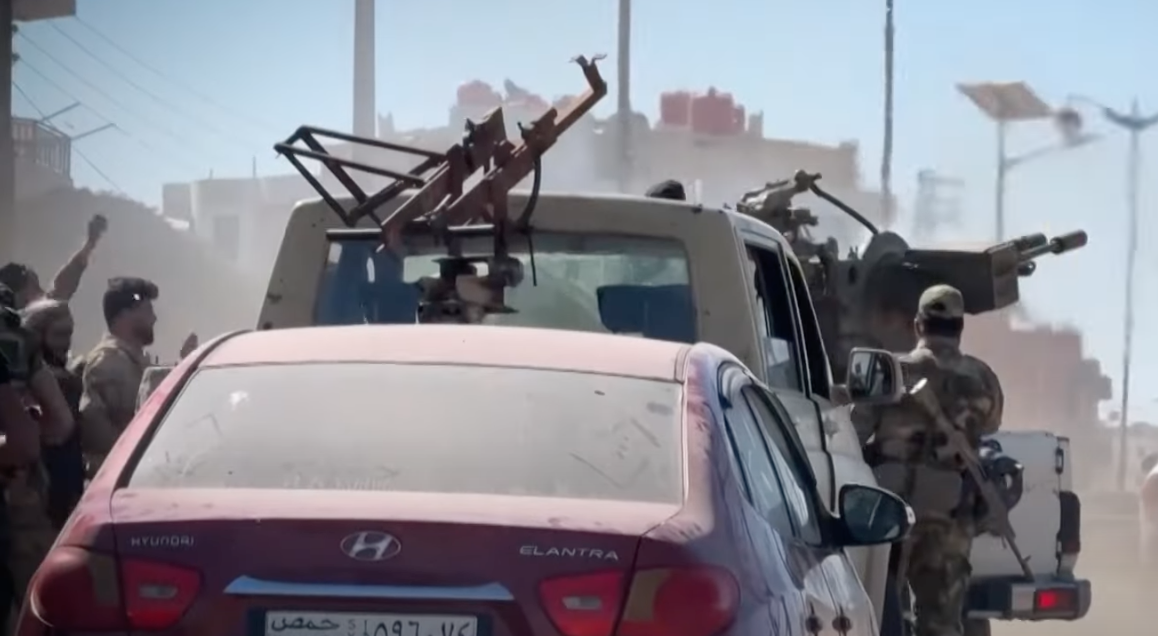Ceasefire Falters as Druze and Bedouin Clashes Resume in As-Suwayda
Heavy clashes erupted again on Friday between Druze and Bedouin fighters in Syria’s As-Suwayda province, despite a ceasefire agreement earlier in the week.
According to local sources, fighting broke out near the village of Al-Dour, while Bedouin forces also attacked other rural areas west of the province. A source from the Ministry of Interior said Syrian security forces are preparing to redeploy in the Druze-majority city of As-Suwayda in an effort to reduce tensions between the two communities.
On Thursday evening, Israeli drones carried out two separate airstrikes in As-Suwayda, targeting Bedouin fighters and a Syrian military vehicle. Five soldiers from the 70th Brigade, part of the Ministry of Defense, were killed.
Following Druze retaliation, Bedouin civilians reportedly began fleeing the area, and tribal groups across Syria declared a general mobilization to defend their people in As-Suwayda. In a statement, Syrian tribes said: “We, the Council of Syrian Tribes and Clans, declare a general mobilization for all members of the tribes and clans across Syria—from east to west and north to south.”
The statement urged immediate deployment to As-Suwayda to prevent “massacres and ethnic cleansing,” while calling for restraint unless provoked.
This holiday season, give to:
Truth and understanding
The Media Line's intrepid correspondents are in Israel, Gaza, Lebanon, Syria and Pakistan providing first-person reporting.
They all said they cover it.
We see it.
We report with just one agenda: the truth.


Israel announced a humanitarian aid package worth 2 million shekels (about $600,000) for the Druze in As-Suwayda. The Israeli Ministry of Foreign Affairs said: “In light of the recent attacks on the Druze in As-Suwayda and the worsening humanitarian situation in the region, Foreign Minister Gideon Sa’ar has ordered the urgent delivery of humanitarian aid to the Druze in the area.”
The UN estimates that nearly 600 people have been killed and around 2,000 families displaced since violence erupted on July 13.
UN High Commissioner for Human Rights Volker Türk said, “Bloodshed and violence must stop. The protection of all people must be the top priority, in line with international human rights law.”
Syrian President Ahmed al-Sharaa accused Druze fighters of violating the ceasefire, calling them “outlaws” and blaming them for chaos following the army’s withdrawal. A presidential spokesperson said these actions “directly threatened civil peace and pushed the situation toward chaos and security collapse,” warning against further Israeli military involvement.
State media alleged that forces loyal to Druze religious leader Hikmat Al-Hijri were carrying out “ethnic cleansing” of Bedouin tribes. Al-Hijri later called on his followers to avoid attacking peaceful Bedouin communities.
Another Druze leader, Sheikh Youssef Al-Jarbou, said in a televised interview that the fighting in As-Suwayda amounted to “an attempted ethnic cleansing,” shortly before the ceasefire was announced Wednesday.
Saudi Foreign Minister Faisal bin Farhan Al Saud spoke by phone with US Secretary of State Marco Rubio, urging an end to Israeli strikes and respect for Syrian sovereignty. Saudi Arabia’s UN envoy, Abdulaziz Al-Wasel, also called for a halt to Israeli attacks.
Saudi Crown Prince Mohammed bin Salman and al-Sharaa agreed during a phone call on the need for international support for Syria and to prevent foreign interference.
Meanwhile, the foreign ministers of ten Arab countries—Egypt, Jordan, Lebanon, Iraq, the UAE, Bahrain, Saudi Arabia, Oman, Qatar, and Kuwait—joined Turkey in issuing a joint statement supporting Syrian sovereignty and condemning external interference. The statement welcomed the ceasefire and urged President al-Sharaa to hold perpetrators of abuses in As-Suwayda accountable.

